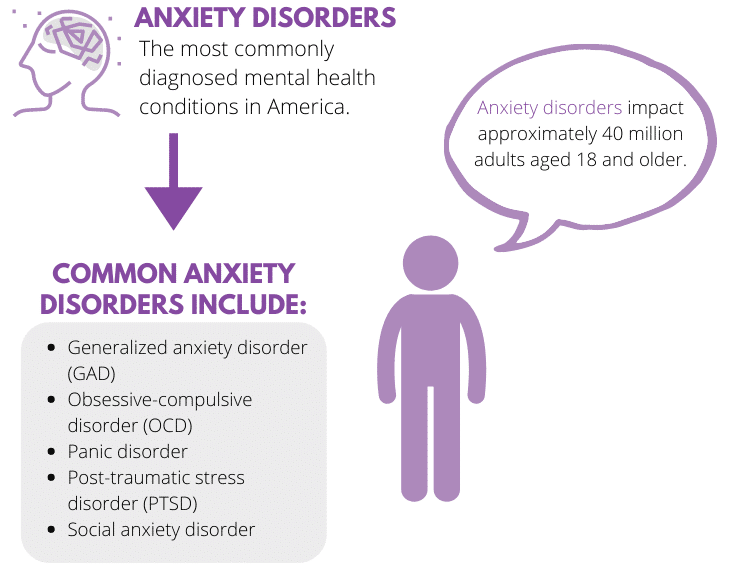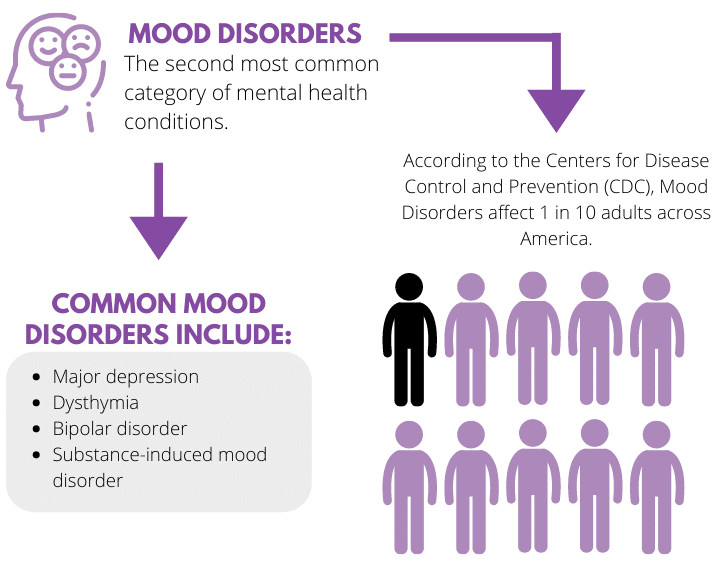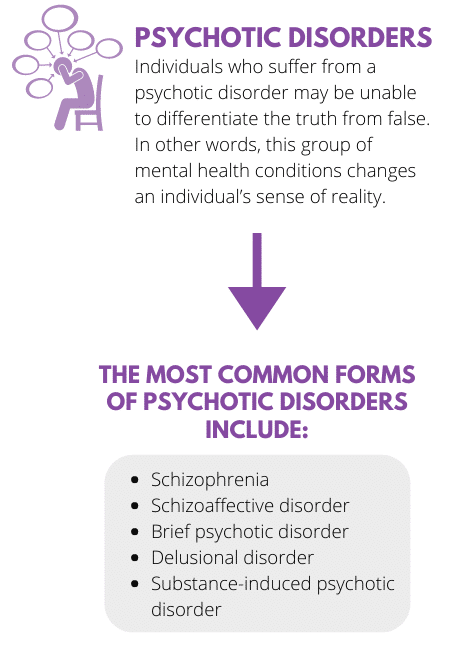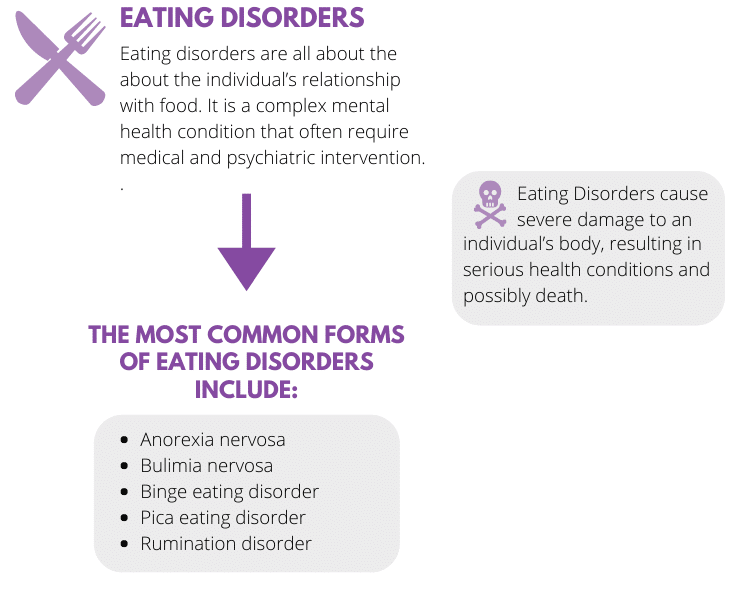Mental health condition or mental illness affects an individual’s thoughts, moods, and behaviors. Among the most common mental health conditions are anxiety disorders, mood disorders, and eating disorders. Unfortunately, more than 50% of Americans will be diagnosed with a mental illness or disorder at some point in their lifetime. Depending on the specific type of illness, mental health conditions are either occasional or chronic. Regardless, mental health conditions affect an individual’s ability to relate to others and function on a day-to-day basis, which severely affects their quality of life. While there are some steps to overcome mental health conditions, more serious illnesses require professional treatment.
Whether you’re looking for help for yourself, a loved one, or simply want to gain awareness around mental health, continue reading to learn more about the 5 most common mental health conditions.
Table of Contents
ToggleAnxiety Disorders
The most commonly diagnosed mental health conditions in America are referred to as anxiety disorders. In fact, anxiety disorders impact approximately 40 million adults aged 18 and older. Anxiety disorders cause individuals to experience frequent feelings of distress, fear, and apprehension. While many individuals experience feelings of anxiety during stressful situations, people with anxiety disorders suffer from anxiety during seemingly non-stressful events. Additionally, individuals with anxiety disorders may experience bouts of anxiety for 6 months or more at a time.

Mood Disorders
The second most common category of mental health conditions is mood disorders. According to the Centers for Disease Control and Prevention (CDC), mood disorders affect 1 in 10 adults across America. While most people experience mood swings from time to time, individuals with a mood disorder live with more persistent and severe symptoms that disrupt their daily lives. Depending on the specific condition, individuals with mood disorders may experience an ongoing sad, anxious, or “empty” mood; feelings of hopelessness; low self-esteem; excessive guilt; decreased energy, and more. Fortunately, mood disorders are managed through therapy, self-care, medications, and professional mental health treatment.

Psychotic Disorders
Individuals who suffer from a psychotic disorder may be unable to differentiate the truth from false. In other words, this group of mental health conditions changes an individual’s sense of reality. Research has shown that certain viruses, problems with specific brain circuits, extreme stress or trauma, and some forms of drug abuse play a role in the development of psychotic disorders. Oftentimes, psychotic disorders require professional mental health treatment due to the disconnect from reality that individuals might experience.

Eating Disorders
Unlike popular belief, eating disorders are about more than the individual’s relationship with food. Eating disorders are complex mental health conditions that often require medical and psychiatric intervention. Also, eating disorders and addiction commonly co-occur. To explain, eating disorders cause unhealthy patterns of eating to develop such as an obsession with food, body weight, or body shape. In severe cases, eating disorders cause severe damage to an individual’s body, resulting in serious health conditions and possibly death. However, with the proper treatment, individuals can successfully recover from an eating disorder. Common symptoms of eating disorders include the severe restriction of food, food binges, or purging behaviors, such as vomiting or over-exercising.

Substance Use Disorders
Substance abuse can lead to the development of a substance use disorder. Often used interchangeably with addiction, substance use disorder is defined as the inability to control or stop the consumption of drugs or alcohol despite facing negative consequences. According to studies, nearly 23 million Americans experience an addiction each year. Unfortunately, only about 10% of individuals with addictions receive proper psychological and medical treatment.
According to the DSM-5, the criteria for a substance use disorder include:
- Using the substance in ways that are dangerous to yourself and/or others, i.e., overdosed, driven while under the influence, or blacked out.
- Substance use has caused relationship problems or conflicts with others.
- Failing to meet your responsibilities at work, school, or home because of your substance use.
- When you’ve stopped using the substance, you’ve experienced withdrawal symptoms.
- Building up a tolerance to the substance so that you have to use more to get the same effect.
- Starting to use larger amounts or use the substance for longer amounts of time.
- Trying to cut back or quit entirely but haven’t been successful.
- Spending a lot of your time using the substance.
- Substance use has led to physical health problems like liver damage or lung cancer, or psychological issues, such as depression or anxiety.
- Skipping activities or stopping activities you once enjoyed in order to use the substance.
- Experiencing cravings for the substance.
Mental Health and Addiction Help at Agape Treatment Center
Mental health conditions affect millions of Americans on a daily basis. Dealing with a mental health condition such as anxiety, depression, or substance use disorder can be extremely difficult. Luckily, dual-diagnosis rehab programs such as Agape Treatment Center are equipped with the knowledge and evidence-based treatment modalities needed in order to recover. Contact us today for more information about our mental health and addiction treatment programs.







